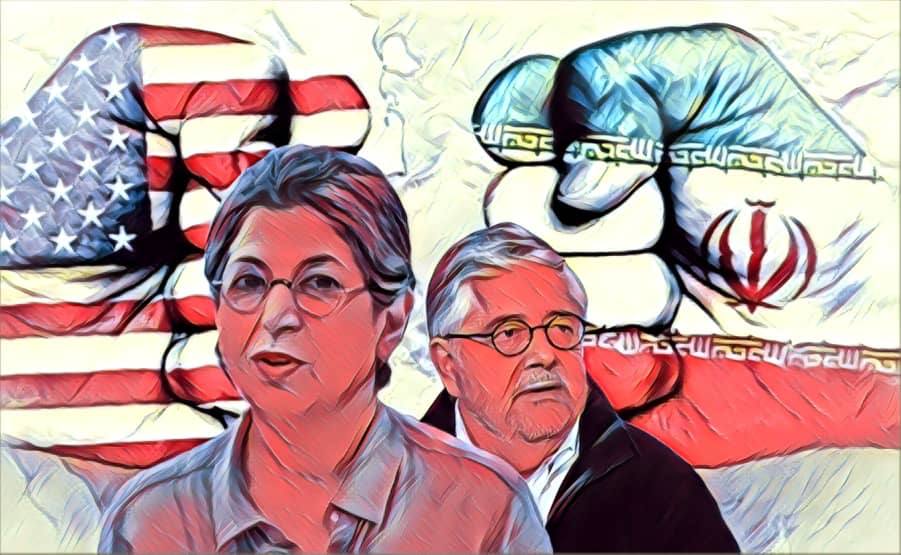What was behind the arrest of Fariba Adelkhah and Roland Marchal
What was behind the arrest of Fariba Adelkhah and Roland Marchal? According to Iran Gate, Fariba Adelkhah, the renowned Iranian-French anthropologist and researcher, has recently revisited the case of the arrest and exchange of Roland Marchal for Jalal Rouhollahnejad in 2020. She revealed new details about these events during a Clubhouse session, referring to her own arrest and that of Mr. Marchal.
Fariba Adelkhah, the Iranian-French anthropologist and researcher at Sciences Po University in France, recently disclosed new details about her and Roland Marchal’s arrest, which have drawn the attention of researchers and political discussion audiences. These remarks, coinciding with the political prisoner exchange between Iran and the United States, have raised new doubts about the identity of the individuals the United States plans to exchange for five American-born prisoners in Iran and who these individuals are.
The recurring exchange scenario
According to most experts, the Islamic Republic’s action to arrest Fariba Adelkhah and Roland Marchal, the French sociologist and Mrs. Adelkhah’s partner, by security forces was aimed at exchanging them for Jalal Rouhollahnejad, an Iranian citizen who had been arrested in France. This citizen, accused of circumventing oil and banking sanctions against Iran, was detained by French security forces upon entering French territory.
According to information released by French security agencies, the Islamic Republic had been seeking the release of Rouhollahnejad, the Iranian engineer imprisoned in France, from the very first days of his arrest. These events coincided with Adelkhah’s presence in Iran, where she was conducting research on Islamic fundamentalism.
What is Adelkhah’s account
Fariba Adelkhah recently shared statements on the social media platform Clubhouse about the manner of her and her partner’s arrest, revealing new dimensions of this case to the audience. According to this renowned anthropologist, Mr. Marchal had no connection with Iran whatsoever, and the charges against him were entirely baseless. Adelkhah emphasized that Roland Marchal is a sociologist researching Islamism in West African countries and was unfamiliar with Iran.
Ms. Adelkhah, stressing Marchal’s unfamiliarity with Iranian culture and even the language, believes his arrest was solely aimed at exchanging this French sociologist for Jalal Rouhollahnejad. She recalled the circumstances of her and Mr. Marchal’s arrest, referring to events that occurred at Imam Khomeini Airport. According to Adelkhah, Mr. Marchal was detained by security forces inside the airplane before disembarking, and she was arrested at the airport before meeting Roland Marchal.
An illicit relationship between a 60-year-old woman and a 65-year-old man
Ms. Adelkhah referred to her and her husband’s interrogation period, asserting that there was no connection between Mr. Marchal and Iran. She claims that the only point of interest and emphasis for Iranian authorities in Marchal’s case was the extramarital relationship between these two French researchers. Ms. Adelkhah, noting she is in her 60th year of life, describes Roland Marchal as a 65-year-old man, suggesting that an illicit relationship between these two individuals is practically absurd and inconceivable.
Emphasizing the ridiculousness of this accusation, she mentioned her and Roland Marchal’s request for a religious marriage during detention. According to Adelkhah, the Islamic Republic authorities opposed this request. She claims that the opposition was because there was no other reason or evidence to keep Mr. Marchal in custody, and if they had registered this official and religious marriage, Mr. Marchal would practically have to be released.
Hostage-taking to escape sanction pressure
The exchange of political prisoners between Iran and the USA has recently entered a new phase. This event, seemingly coinciding with the transfer of Iran’s blocked resources in South Korea, has practically become a lever to reduce the sanction pressure on the Islamic Republic. Fariba Adelkhah also made statements in this regard, viewing the regime’s use of dual nationals’ detention as the only remaining way for the Islamic Republic.
This anthropology professor at Sciences Po emphasized that as long as the sanction pressure weighs heavily on the regime, dual nationals will be used as the best leverage by the Islamic Republic. This action has been severely criticized and condemned by legal experts, who even consider President Raisi’s policy to violate Iran’s national sovereignty. However, it seems the Islamic Republic has no intention of changing its approach to facing sanctions and will continue with this policy.
New York Times details on the Iran-US agreement
Jailed American appeals to Biden in unprecedented interview from Iran’s most notorious prison
English
View this article in English

